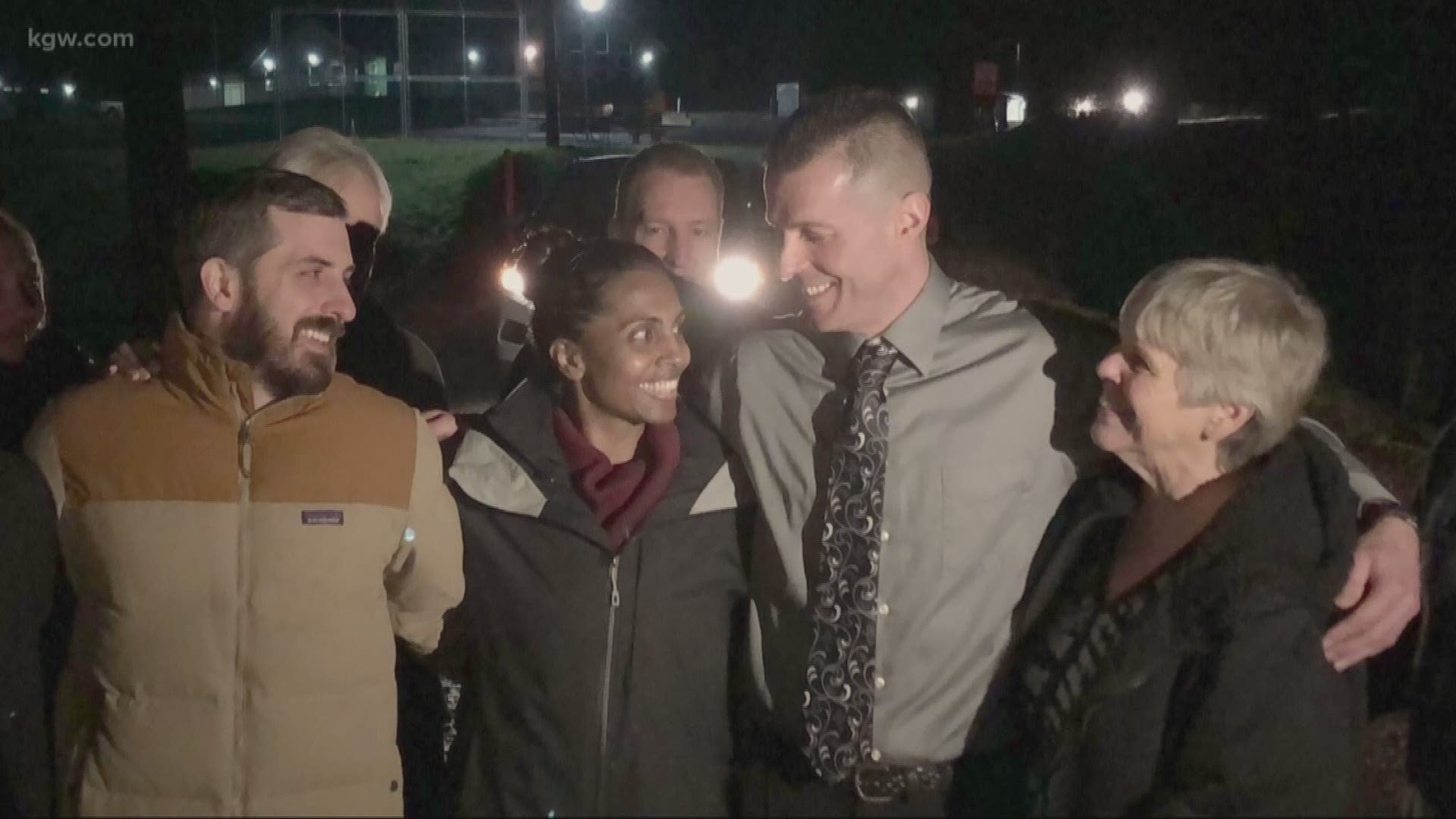PORTLAND, Ore. — After spending nine years behind bars for a crime he’s always said he didn’t commit, Nick McGuffin is a free man.
The transition back to life outside prison walls, however, has not been easy.
He was convicted of killing his high school girlfriend Leah Freeman in Coquille, a small Coos County town, in 2000.
KGW had the opportunity to sit down with him on Saturday to discuss life before, during and after his time in prison.
“I lost over nine years with my daughter, my family,” McGuffin said. “There are so many things that you never get back, you try to grasp at those things. It’s just not going to happen.”
Ten years after Leah Freeman was killed, a 10-2 jury found McGuffin guilty of manslaughter and a judge sentenced him to 10 years in prison.
“Somebody out there did this crime and it wasn’t me,” McGuffin said.
A court overturned McGuffin’s conviction in December 2019 after his lawyer Janis Puracal, of the Forensic Justice Project, had DNA evidence retested. She said police, prosecutors and a state crime lab did not originally disclose that evidence existed during McGuffin's initial trial.
The DNA came from the only true piece of physical evidence related to Freeman’s death: her bloody shoe. The DNA didn’t belong to McGuffin, but pointed to an unidentified male.
“There’s no blood, there’s no DNA, there are no hairs, there are no fibers, there’s nothing that ties Nick to this crime. But there is DNA pointing to some other suspect,” Puracal said.
McGuffin was freed from an Oregon prison in December 2019 once a post-conviction court judge ruled that the Oregon State Police lab violated his constitutional rights by failing to disclose the DNA evidence.
"Review of the results show that unknown male DNA was found on both shoes, not belonging to Petitioner [McGuffin], and those results were known in 2001 and 2002 when the reports were generated," Malheur County Circuit Court Judge Patricia Sullivan said in her ruling.
According to OPB, analysts didn't disclose the information because of an internal policy at the time. But Sullivan said that the internal policy at the time of the investigation in the early 2000s was no longer the standard when the case went to trial in 2011.
The Coos County district attorney decided not to retry the case.
“It’s a day that I'm not going to forget, right before Christmas,” McGuffin said. “You kind of lose yourself [in prison].”
While behind bars, McGuffin said he did what he could to help bring justice for Leah and her family, particularly by working with Puracal.
McGuffin’s daughter and her strength got him through it all, and he says her strength is what motivates him now that he’s out.
“I've got to show her strength. She shows it to me at, you know, 12 years old,” he added.
Though he walks free he feels shackled by the chains of anxiety, living back in the community where people cast him as a killer.
“I thought it would be easier coming home. It’s not. I mean I don’t go out a lot, I stay home a lot. I go work out - that’s one of the things that keeps me somewhat level-headed,” he told KGW.
These past couple months he says he’s been an emotion wreck and broken down a lot, but is trying to live each day to the fullest
“I learned the nine years in there, though, you don’t take life for granted.”
A skilled and experienced chef, McGuffin’s focus is getting back into the career he loves so much. That has proven tough in his tiny hometown.
“Even though he’s been exonerated, he is essentially blacklisted from that career because he spent time in prison. He spent time in prison wrongfully. So he needs people to give him a shot,” Puracal said.
It’s become his mission, McGuffin says, to keep Leah’s story in the spotlight and keep seeking the truth about what happened to her.
“I want to keep Leah’s voice alive, I want to keep her light alive. I just want to find out what happened. That’s all I want.”

